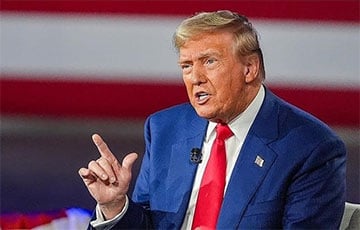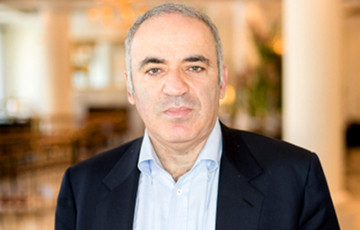Will Trump Support Israel In A War Against Iran?
- 21.06.2025, 11:40
- 1,628

Bombs or diplomacy.
The confrontation between Israel and Iran continues in the Middle East, with strikes exchanged continuously for more than a week. At the same time, diplomatic talks on de-escalation continue, as well as the possible involvement of the US in strikes against Iran.
RBC-Ukraine reports on the latest developments in the standoff, attempts at diplomacy and doubts of Donald Trump.
Israel's military operation against Iran has entered a "routine" phase. Every day, the Israeli air force strikes military infrastructure and nuclear facilities, and methodically destroys Iranian leaders and top nuclear scientists. At the same time, Iran's top political leadership remains untouchable, although Israel has called for the overthrow of the authorities in Tehran.
In turn, Iran responds with missile and drone attacks on Israel, although their intensity has significantly decreased from over a hundred in the early days of the conflict to less than a dozen missiles per attack. Among other things, this is due to the destruction of a large number of Iranian launchers and the need to save ammunition. Iran has demonstrated that it can also intensify its shelling. For example, to launch 30 missiles at Israel on June 19.
In the beginning of the conflict, Israeli missile defense showed high efficiency - at the level of 90-95% of shot down missiles. However, since the beginning of the week, the interception efficiency has dropped to around 65-80%. According to NBC News, the reason is Iran's use of more advanced missiles with multiple warheads, which make interception more difficult.
US position
Israel does not yet have the ability to completely destroy Iran's nuclear program. As RBC-Ukraine wrote, one of Iran's facilities, the Fordow nuclear complex, is located at a considerable depth in the thickness of rock. It can probably be destroyed only by a specialized American GBU-57 bomb (MOP). Therefore, it requires the involvement of the States to destroy Fordo.
U.S. President Donald Trump is in no hurry to engage in strikes against Iran. During the week, he made a number of contradictory statements on the matter, and also called on Iran to surrender.
On June 19, White House press secretary Caroline Leavitt said that Trump will make a decision on Washington's involvement in the war within the next two weeks. According to Leavitt, a decision on U.S. involvement in the conflict takes time because there is the prospect of negotiations with Iran, which may or may not take place soon. She also emphasized that the White House administration is seeking a diplomatic solution to the situation with Iran, but the main priority is to prevent Tehran from obtaining nuclear weapons.
Trump believes that striking Iran is worthwhile only if the so-called "bunker bomb" really guarantees the destruction of the Fordow facility, The Guardian reported. According to the publication's interlocutors, so far the White House is not sure about this. Trump does not seem to be fully convinced of the effectiveness of the strike and expects that the very threat from the US will push Iran to make concessions.
For its part, Israel has not abandoned its attempts to convince Trump to join the strikes on Iran. On June 19, Israeli Prime Minister Binyamin Netanyahu and the IDF leadership met with Trump administration officials - U.S. Vice President J.D. Vance and Defense Secretary Pete Hegseth.
At the same time, the U.S. is pulling more forces into the Middle East. On June 16, a strike group led by the aircraft carrier Nimitz left the South China Sea and headed toward the Middle East. The U.S. Navy ordered the USS Thomas Hudner to head to the Eastern Mediterranean and another destroyer to begin moving forward so it would be ready to act on the White House's request.
The U.S. has also moved some aircraft and ships from bases in the Middle East that could be vulnerable to a potential Iranian attack to other locations. At the same time, there is no indication that B-2 Spirit bombers, which could carry bombs to destroy Fordow, have been moved to the region,
Iran and negotiations
Despite exchanging strikes with Israel, Iran continues to dialog with the U.S. and Europe. According to Reuters, Trump's special envoy Steven Whitkoff and Iranian Foreign Minister Abbas Araghchi have spoken by phone several times since the Israeli attacks began in an effort to diplomatically resolve the conflict.
Araghchi emphasized that Tehran will not resume talks until Israel stops the strikes. The agency said this week's calls were the most substantive since contacts began in April. Araghchi noted that Iran is "ready to compromise on the nuclear issue" if the US forces Israel to stop the hostilities. At issue is a U.S. proposal made to Iran in late May. It envisages the creation of a regional consortium for uranium enrichment outside the country, which Tehran has so far rejected.
In parallel, Iran's foreign minister held talks in Geneva with the foreign ministers of France, Britain and Germany. They prepared a comprehensive diplomatic proposal for Tehran, which in theory should stop the escalation with Israel.
Among other things, it includes: a complete halt to uranium enrichment and the reopening of the IAEA with access to all Iranian nuclear facilities; oversight of Iran's ballistic program; an end to Iran's financing of "terrorist groups in the region," i.e. Iranian "proxies" (Hamas, Hezbollah, the Houthis, pro-Iranian Shiites in Iraq, etc.); Iran's release of "terrorist groups in the region," i.e. Iranian "proxies" (Hamas, Hezbollah, the Houthis, pro-Iranian Shiites in Iraq, etc.).etc.); Iran's release of "all hostages," i.e., foreign nationals imprisoned by the Iranian government.
***
The escalation between Israel and Iran has generally reached a plateau - after the initial shock, Tehran has recovered and is trying to respond systematically to the crisis. This includes defending what Israel has yet to destroy and retaliating. In turn, Israel has gradually exhausted its target bank and cannot do more damage to Iran unless it attacks civilian targets, oil export infrastructure and Iran's political leadership. However, this threatens reputational losses and not only - many international players will not be delighted with a possible sharp rise in oil prices.
On the international level, the main story remains the fight over Trump's position. Just as with Ukraine, the US president is "stretched thin." On the one hand, starting a new conflict is definitely not what he came into office for. On the other hand, Trump is under pressure from the Israeli lobby and the hawks in his inner circle. After all, Iran itself is trying to pre-empt a US strike by showing that it is ready to negotiate. It remains unclear to what extent this is true, and to what extent it is a tactical game to buy time.
Among other things, the motivation of Iranian leaders is also influenced by the economic and social situation inside the country, which has obviously deteriorated after the Israeli attacks. If they feel their positions are strong - we should expect further imitation of negotiations. If the threat to the regime is real, concessions from Iran could be achieved more quickly. However, there is no reliable data on this - the country has actually cut itself off from the external Internet.











